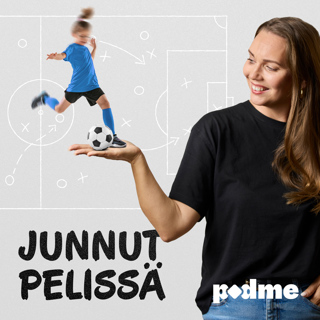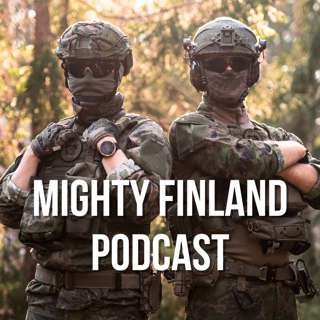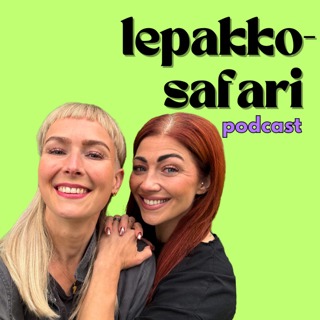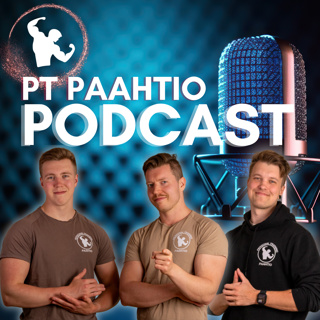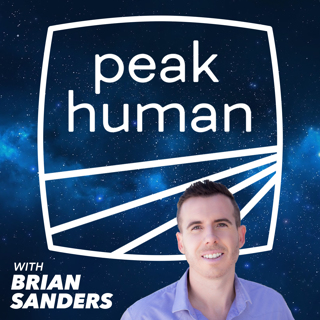
Part 145 - Dr. Bill Schindler on How to Eat Like a Human, How to Detoxify Plant Foods, and Why Eat Nose to Tail
Dr. Bill Schindler is back for another great episode! This is his third appearance on the podcast, so be sure to listen to our previous episodes. After 10 years of hard work, he is excited to announce the release of his new book: Eat Like A Human. He was trained as an anthropologist and more recently as a chef. His work focuses on extracting the most nutrition possible from food, so we cover a wide range of fascinating topics and stories. Dr. Bill Schindler is an internationally known archaeologist, primitive technologist, and chef. He founded and directs the Eastern Shore Food Lab with a mission to preserve and revive ancestral dietary approaches to create a nourishing, ethical, and sustainable food system and is an adjunct associate professor of archaeology at University College Dublin. His work is currently the focus of Wired magazine's YouTube series, Basic Instincts and Food Science, and he co‑starred in the National Geographic Channel series The Great Human Race, which aired in 2016 in 171 countries. Dr. Schindler has also been featured on CNN, Maryland Public Television, NPR's Weekend Edition and Here and Now, as well as on such podcasts as Milk Street Radio, Peak Human, and The Academic Minute. Dr. Schindler's work has appeared in the Washington Post, The Atlantic, and the London Times, among other publications. Visit his website! - https://eatlikeahuman.com SHOW NOTES [4:20] His background, travels, and new book: Eat Like A Human [9:00] How an animal-based diet made us human [12:30] Why humans are omnivores [19:40] The healthiest, most nourishing diet possible [22:40] Humans eat nose to tail, not just meat [26:00] How hunting fueled our massive body & brain growth [30:00] Why we should be wary of plant foods [36:30] Brian and Bill's shocking oxalate stories [44:30] How do we detoxify different plant foods? [49:00] The most and least toxic parts of a plant [54:50] Modern convenience disregards tradition & detoxification [1:00:30] The most rewarding part of hunting [1:05:00] Learn more! - https://modernstoneagekitchen.com GET THE MEAT! http://NosetoTail.org GET THE FREE SAPIEN FOOD GUIDE! http://Sapien.org Follow along: http://twitter.com/FoodLiesOrg http://instagram.com/food.lies http://facebook.com/FoodLiesOrg
2 Joulu 20211h 8min

Part 144 - Mark Schatzker on How to Conquer Your Cravings and What Makes Us Overeat
Today's episode features Mark Schatzker who just released his new book: The End of Craving. Back on episode 69, we discussed another one of his amazing books: The Dorito Effect. While many people are arguing about the calories or macronutrients in diets, Mark focuses on the experience of eating – the enjoyment and flavor of food. This episode is packed with mind-blowing bits of information on obesity, cravings, weight loss, brain science, and the history of our food system. Mark Schatzker is the author of three books: Steak, The Dorito Effect, and The End of Craving. A former feature writer for Conde Nast Traveler, his work has been published in the New York Times, the Wall Street Journal, Best American Travel Writing and Annual Review of Psychology. He is the writer in residence at the Modern Diet and Physiology Research Center, which is based at Yale University. He lives in Toronto. Visit his website! - https://www.markschatzker.com SHOW NOTES [03:30] A recap of The Dorito Effect [6:50] Mark's new book: The End of Craving [11:50] The pellagra epidemic [18:50] The brain's starring role in weight loss [21:35] The science behind craving [24:50] The truth about dopamine & food [29:20] What causes us to WANT more food? [33:20] Is sweetness an arbitrary sensation? [36:10] How uncertainty affects our brain [40:50] Does food insecurity cause us to eat more? [43:50] How we've overlooked the experience of eating [44:30] Is arguing about macronutrients a waste of time? [51:50] Changing the conversation on diet [57:50] Deliciousness isn't the enemy [1:00:20] What we can learn from animals & scurvy [1:02:50] Did enrichment & fortification make obesity worse? [1:06:50] How we can learn from fattening livestock [1:10:00] Why companies are incentivized to fortify food [1:12:50] The recipe for everlasting hunger – eating light GET THE MEAT! http://NosetoTail.org GET THE FREE SAPIEN FOOD GUIDE! http://Sapien.org Follow along: http://twitter.com/FoodLiesOrg http://instagram.com/food.lies http://facebook.com/FoodLiesOrg
23 Marras 20211h 15min

Part 143 - Dr. Gary Shlifer on Immune Health & Public Policy - A Doctor's Controversial Take
Today's guest is my good friend Dr. Gary Shlifer who has a clinic in Los Angeles and is not afraid to speak his mind on the current public policy on immune health and other controversial topics. He previously made an appearance on episode 48. In this episode, we reflect on the mainstream narrative on immune health over the past 2 years. We primarily discuss how the media and government tend to ignore some of the most important factors for staying healthy and building a strong immune system – diet and lifestyle. Dr. Gary is a co-founder of Sapien where we promote a more ancestral diet and lifestyle and host the Sapien Podcast together. DISCLAIMER: The opinions and information provided here by Dr. Gary Shlifer and Brian Sanders are not to be taken as medical advice. Dr. Gary Shlifer is a board-certified internal medicine physician specializing in preventative care, nutrition/metabolism and anti-aging medicine. Dr. Gary brings his robust experienced with hospital inpatient medicine to his outpatient primary care practice in order to help prevent and cure disease in his patients. He is the founder of Evolve Healthcare in Los Angeles, a multi-specialty integrative medicine clinic focused on disease prevention and lifestyle optimization. After Immigrating to from Russia with his family at age 3, Dr. Gary grew up in the San Fernando Valley where he returned after his medical training to build his practice. Through his companies and community outreach, he works to promote his message of healthy living, eating and lifestyle practices while developing into a leader in his community. Learn more about his practice! - https://evolvehealthcare.com SHOW NOTES [6:55] How big industry destroys our health [12:55] Physicians and individuals need independence [17:55] Is science being treated as a religion? [21:55] Most risk factors are modifiable [25:25] Our new culture of fear [30:55] Does industry control mainstream health advice? [33:55] Brian's pothole analogy [37:25] The political domination of our health [41:55] Why your vitamin D level is so important [44:55] Dr. Gary's mandate story [50:55] Why are so many people quitting their jobs? [55:55] Dr. Gary's parents' generation [1:00:25] How the government and media overplayed their hand [1:04:25] Eating clean and feeling good go hand-in-hand GET THE MEAT! http://NosetoTail.org GET THE FREE SAPIEN FOOD GUIDE! http://Sapien.org Follow along: http://twitter.com/FoodLiesOrg http://instagram.com/food.lies http://facebook.com/FoodLiesOrg
17 Marras 20211h 10min

Part 142 - Dr. Natasha Campbell-McBride on Healing Millions w/ Animal Based Diets, Reversing Mental Disorders, and the GAPS Diet
Today's guest is Dr. Natasha Campbell-McBride, who is the creator of the GAPS diet. The GAPS diet aims to solve an array of health conditions and chronic diseases by healing the gut. She has helped millions of people through her GAPS nutritional protocols and she shares a lot of her wisdom with us in this jam-packed episode! We discuss the gut-brain connection, processed foods, glyphosate, children's diets, modern dairy, and much more! Dr. Natasha Campbell-McBride holds a degree in Medicine and Postgraduate degrees in both Neurology and Human Nutrition. In her clinic in Cambridge she specialized in nutrition for children and adults with behavioral and learning disabilities, and adults with digestive and immune system disorders. Dr. Campbell-McBride set up The Cambridge Nutrition Clinic in 1998. As a parent of a child diagnosed with learning disabilities, she was acutely aware of the difficulties facing other parents like her, and she has devoted much of her time to helping these families. She realized that nutrition played a critical role in helping children and adults to overcome their disabilities, and has pioneered the use of probiotics in this field. She believes that the link between learning disabilities, the food and drink that we take, and the condition of our digestive system is absolute, and the results of her work have supported her position on this subject. In her clinic, parents discuss all aspects of their child's condition, confident in the knowledge that they are not only talking to a professional but to a parent who has lived their experience. Her deep understanding of the challenges they face puts her advice in a class of its own. Learn more about her protocol! - https://www.gapsdiet.com/about/ SHOW NOTES [05:35] Gut and Psychology Syndrome (GAPS) [11:05] What happens when you have abnormal gut flora? [15:15] Every bite of food from the supermarket is full of glyphosate [19:45] Your health is rooted in your gut microbes [25:15] Our brain development hinges on our gut health [34:00] Do we overeat foods because of gut problems? [39:45] The main problem with processed foods [33:30] The deleterious effects of high insulin [47:15] The actual cause of heart disease [49:35] Why does everyone want treats? [53:15] How to fix a child's diet [57:15] Why meat stock is beneficial for children [1:02:25] Is meat stock better than bone broth? [1:07:45] Autism, epilepsy, schizophrenia & the GAPS diet [1:11:30] What is the GAPS protocol? [1:18:15] What foods are GAPS-approved? [1:25:45] Humans can't live without animal products [1:31:35] Vegetables – a modern human invention? [1:38:15] What about fruit & honey? [1:44:45] Is modern dairy healthy? [1:49:15] The best type of dairy [1:52:35] How she was raised in the Soviet Union GET THE MEAT! http://NosetoTail.org GET THE FREE SAPIEN FOOD GUIDE! http://Sapien.org Follow along: http://twitter.com/FoodLiesOrg http://instagram.com/food.lies http://facebook.com/FoodLiesOrg
27 Loka 20211h 58min

Part 141 - Dr. Fred Provenza on the Hidden Nutrition in Meat and the Ancient Wisdom That Animals and Humans Have Forgotten
Today's episode features Fred Provenza, PhD who is a long awaited guest on this show. If you've listened to previous episodes, you may recognize his name. We've discussed his research many times on this podcast because it closely ties together animal agriculture with human health and nutrition. This was a long but amazing conversation about the innate wisdom of animals when it comes to diet and what we can learn from that as humans. Fred Provenza is professor emeritus of Behavioral Ecology in the Department of Wildland Resources at Utah State University. At Utah State Provenza directed an award-winning research group that pioneered an understanding of how learning influences foraging behavior and how behavior links soils and plants with herbivores and humans. Provenza is one of the founders of BEHAVE, an international network of scientists and land managers committed to integrating behavioral principles with local knowledge to enhance environmental, economic, and cultural values of rural and urban communities. He is also the author of Nourishment, Foraging Behavior, and the co-author of The Art & Science of Shepherding. SHOW NOTES [05:15] His background [8:20] Gabe Brown & local adaptation [12:30] Are humans and animals losing their instincts? [15:30] Nature is the pharmacy for animals [21:30] Why transgenerational links matter [24:50] How animals self-medicate [29:30] Modern food has hijacked our biology [35:20] Science should welcome disagreement [40:40] Plants are conscious, sentient, and sacred. [43:30] Instinctive eating in animals [46:30] Animals correct nutrient deficiencies on their own [50:00] How other specifies detoxify plant foods [53:30] How tribes deal with parasites and plant toxins [57:00] Protein leverage demonstrated in livestock [1:03:40] Why protein calories are different [1:08:30] Overeating foods to correct mineral deficiencies [1:12:30] A diverse diet leads to healthier animals and meat [1:17:00] How to get a full range of nutrition [1:20:55] Meat quality depends on the diet of the animal [1:24:30] Do people on plant-based diets crave meat? [1:30:00] The link between our health and the landscape [1:33:30] The adopted infant study [1:37:30] Ask your ranchers about the diet of their animals [1:40:30] The arrogance of the anti-meat agenda [1:42:15] Producing our own food & a decentralized food system [1:44:30] Is homesteading the future of food production? GET THE MEAT! http://NosetoTail.org GET THE FREE SAPIEN FOOD GUIDE! http://Sapien.org Follow along: http://twitter.com/FoodLiesOrg http://instagram.com/food.lies http://facebook.com/FoodLiesOrg
19 Loka 20211h 48min

Part 140 - The Great Carbs vs. Fat Debate. How to fuel yourself after your baseline of animal protein w/ Dr. Jamie Seeman & Kate Deering
In this episode, I sat down with Kate Deering and Dr. Jamie Seeman for a fun discussion on nutrition and our metabolism. This was a great, civilized conversation between two people who have different approaches to nutrition. They both agree on a lot, including the importance of eating real foods, especially animal products, and avoiding highly processed foods like seed oils. They both have a great deal of experience in the department of women's health and the effects of lifestyle on hormonal health. Kate Deering is a respected personal trainer and holistic nutritional, exercise, and lifestyle coach. With more than 20 years experience in the health and fitness industry, she prides herself on her out-of-the-box methods that support metabolic health and improve health and body function. Kate has committed her life to finding the answers to optimal health, a high metabolism, and true happiness. Her own journey to health and happiness became the foundation of her teachings and helped her understand why health is not established with dieting and over-exercising but with self-love and an increase in cellular metabolism—usually achieved with eating more and working out less. She is the author of the book: How to heal your metabolism and on instagram @katedeeringfitness Dr Jaime Seeman is a board certified Obstetrician and Gynecologist practicing in Omaha, Nebraska. Born and raised in the state she played collegiate softball for the Cornhuskers. She has a Bachelor of Science degree in Nutrition, Exercise and Health Sciences. She then went on to graduate medical school and completed her OBGYN residency at The University of Nebraska Medical Center. She currently is in private practice at Mid City OBGYN offering a full range of services in obstetrics, gynecology, robotic surgery and primary care. She is a fellow in Integrative Medicine at The University of Arizona School of Medicine. She is a board certified ketogenic nutrition specialist and has a passion for fitness, preventative medicine and ketogenic therapy not only in her medical practice but in her own life. You can find her on instagram @doctorfitandfabulous SHOW NOTES: (7:45) Kate's take on nutrition – the bioenergetic view (9:45) Dr. Jamie Seeman's nutrition strategy (14:05) Why context matters & metabolic flexibility (17:30) What's our preferred fuel source? (19:45) Is ketosis a stressful state? (22:30) Glucose vs. Fat and ATP production (26:00) How to start out with a pro-metabolic diet (30:30) Problems with low fat diets (34:30) Why we may want more carbs (38:20) Concerns with Glycemic variability (41:00) A low body temperature and the thyroid (45:30) What constitutes a healthy metabolism? (50:15) Women & chronic dieting (51:20) Why not let the body produce its own glucose? (56:00) The modern world creates chronic stress (1:00:00) Is red meat a superfood? (1:05:00) The problem with cruciferous vegetables GET THE MEAT! http://NosetoTail.org GET THE FREE SAPIEN FOOD GUIDE! http://Sapien.org Follow along: http://twitter.com/FoodLiesOrg http://instagram.com/food.lies http://facebook.com/FoodLiesOrg
13 Loka 20211h 8min

Part 139 - Chris Irvin & Brian Sanders on Making Sense of Calories, Hunger, Diets, Bad Epidemiology, Vegan Propaganda, and True Human Health
This is an interesting episode that features Chris Irvin, M.S. who actually interviewed me on his podcast: Keto Answers. Chris is a health researcher, writer, and educator focusing on the impact of low carb and keto diets on health and human performance. Chris has a master's degree in exercise and nutrition science and spent his time in graduate school studying and conducting ketogenic research. Chris is the creator of the brand The Ketologist, which is known for producing social media infographics and educational health content. He is the author of Keto Answers, Mommy Do I Have to Eat This?, and is the education manager at Perfect Keto. Check out his website: https://www.theketologist.com/ In the episode, we discuss what happened over a 40-year period that changed our food industry to this day, the problem with nutrition epidemiological studies, why a plant-based diet bias exists and how that's negatively affecting us, why counting calories is ineffective and what to focus on instead, satiety signals, and so much more. You'll also hear more about my story, Food Lies and how this differs from other nutritional documentaries out there. SHOW NOTES (4:40) Brian's background (7:35) Where Brian likes to eat in Austin, TX (9:04) How Brian came up with his tagline for Food Lies (10:04) Brian's approach in Food Lies (10:52) The science on ancestral nutrition principles and how it applies today (12:51) What happened during a 40-year period in our history that's still impacting us today (14:40) Gary Taubes' thoughts on what went wrong (17:48) Vitamin K activating vitamin D (18:15) The inherent problems with epidemiological studies (19:53) An interesting nutrition study on kids and obesity rates (21:20) The plant-based diet bias and why this exists and how it's still being perpetuated today (24:17) Why are people continuing to use epidemiological studies if they have problems? (24:55) The impact of Big Food getting involved in our food system (27:35) How bad hospital food is nutritionally and why it's like this (30:33) Why we're in this mess (32:29) What can we do to fix this problem? (40:22) What's the story with calories? (44:42) The satiety levels in food and why this should be more of a focus (49:59) Is it true that obese people have poor appetite signaling hormones? (53:21) The problem with counting calories (54:38) Protein satiety signaling (56:58) The difference between carbs and fats for satiety (59:31) Does the glycemic response and blood sugar play a role in satiety? (1:06:07) Why high omega-6 and seed oil consumption are the biggest problem (1:11:30) The problems with seed oils (1:12:20) Metabolic status and taking daily habits into consideration (1:16:59) More about Brian's documentary Food Lies, including why he started this project, what he hopes to achieve with it, and more (1:19:25) What would success look like for his documentary? (1:24:46) Brian also shares whether he's been censored on social media for his work on his documentary (1:29:32) How you can support Brian's work and his documentary Food Lies GET THE MEAT! http://NosetoTail.org GET THE FREE SAPIEN FOOD GUIDE! http://Sapien.org Follow along: http://twitter.com/FoodLiesOrg http://instagram.com/food.lies http://facebook.com/FoodLiesOrg
6 Loka 20211h 30min

Part 138 - Saving the World with Meat - Can We Feed the World or Should We Feed Our Community?
In this episode, we talk about how we're going to feed the world. That's the question that's on everyone's mind. And while most people are talking about eating less meat and reducing animal agriculture, we discuss how meat and regenerative animal agriculture are part of the solution. Our guests today are Austin & Jessica Ham and Melissa & Clay Trotter. They are championing holistic management practices out in West Texas as part of our new operation at Nose To Tail. Most people are disconnected from their food – they don't know or care about where or how their food is produced. So, we wanted to shed light on ranchers who are restoring ecosystems with grazing animals and producing some of the healthiest, tastiest meat in the country! Through Nose To Tail, their ranches will be providing regenerative beef, chicken, and pork to people across the nation! Find this glorious, flavorful meat at http://NosetoTail.org SHOW NOTES: [4:50] How they started with Savory's holistic management in the 1980s [7:30] Holistic management is an ever-evolving plan [9:00] The land in West Texas needs saving [11:45] How they move cattle almost every morning [13:00] How their grazing plan works [15:35] Why we should emulate herds of bison [17:40] They are thriving on locally sourced food and red meat [20:30] Why they mill their own grains [24:00] Connecting with our food is so important [27:00] Benefits of cattle having a diverse diet [32:25] Why their meat is better than most grass-fed, grass-finished meat [36:30] Can we scale holistic management practices? [38:45] Feed your community, not the world [41:15] A message for Moms and Dads [43:30] Meet the Nose To Tail Pork and Chicken Producers [46:00] Healthy soil makes healthy animals – healthy animals make healthy people [48:30] How they move chickens and pigs [51:00] Why they partner with a local raw dairy [55:00] Why we're aiming for low PUFA meat. [57:40] How they protect their chickens from coyotes [1:02:30] Why the land in West Texas matters [1:06:25] How monocropping strips the land of its life [1:07:50] Their first experience with pastured chicken [1:12:00] How they feed their family [1:16:00] How the community is part of the butchering process GET THE MEAT! http://NosetoTail.org GET THE FREE SAPIEN FOOD GUIDE! http://Sapien.org Follow along: http://twitter.com/FoodLiesOrg http://instagram.com/food.lies http://facebook.com/FoodLiesOrg
1 Loka 20211h 20min










